Friday Music Series
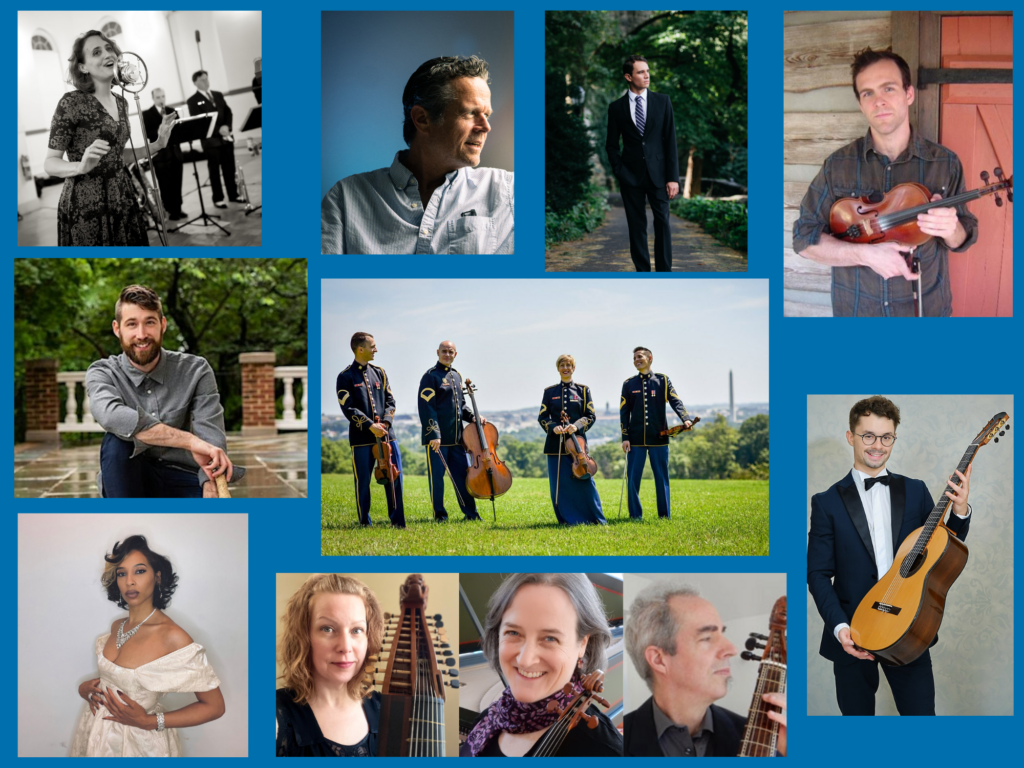
The Friday Music Concert Series offers free performances each semester in McNeir Hall (New North Building) every Friday afternoon (12:30–1:45 pm) for the university community of students, staff, faculty, and neighbors in the city.
Spring 2024
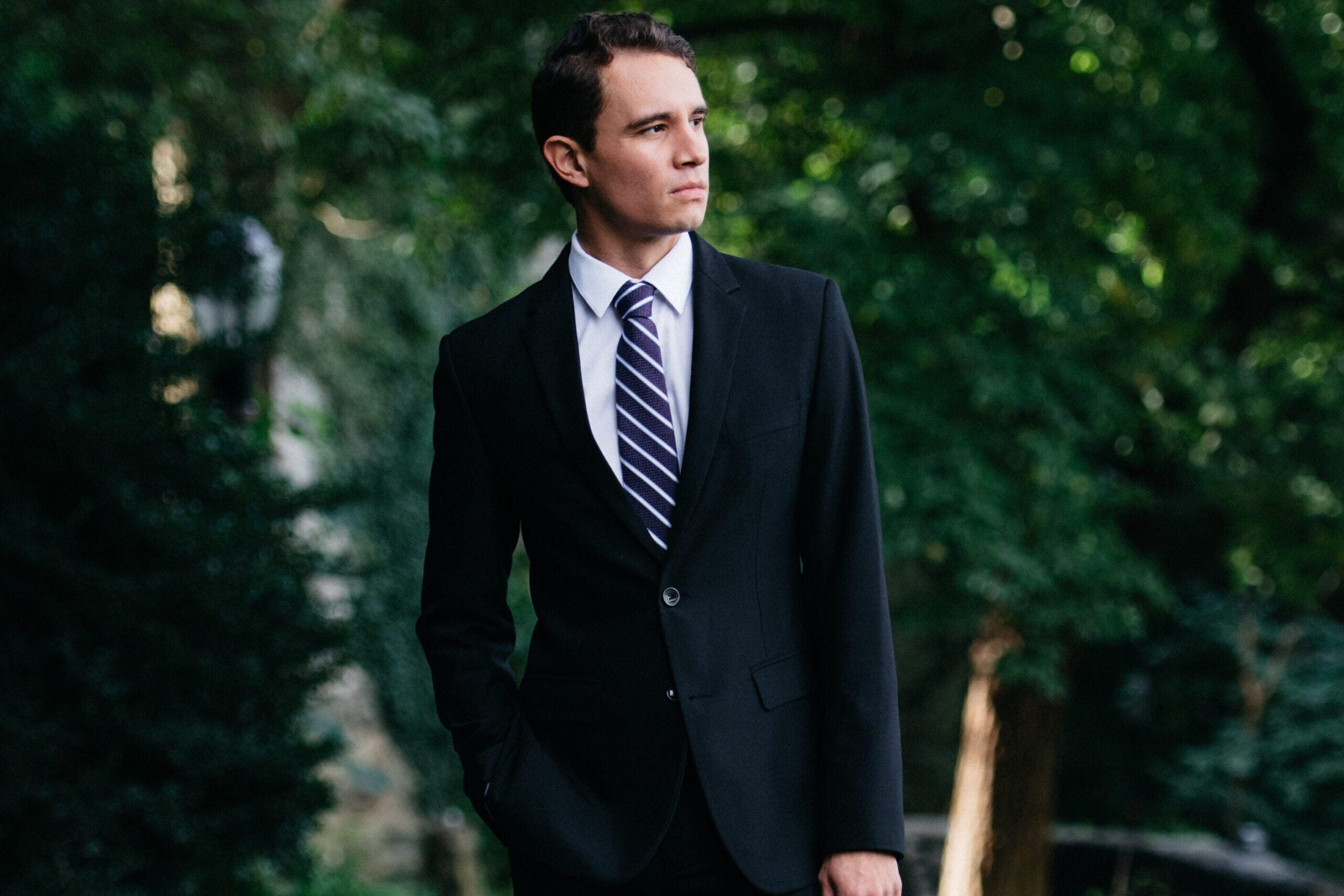
Friday, January 26
Michael Noble, piano
Michael Noble, DMA, is a pianist, composer, and festival director renowned for his commitment to engaging and inspiring audiences through innovative projects and insightful programming.
Since his debut at the age of six, he has developed an international reputation as a pianist whose performances and initiatives have engrossed audiences throughout Asia, Europe, and the Americas. A prizewinner of numerous international competitions, Michael has performed in renowned venues, including Weill and Zankel Halls at Carnegie Hall, the Preston Bradley Center in Chicago, Orchestra Hall (Minneapolis), the Museum of the History of Polish Jews in Warsaw, the Bulgarian Embassy in Washington, DC, the National Academy for the Performing Arts of Trinidad and Tobago, the Musical Instrument Museum in Brussels, and the Sunset Center in Carmel, California.
Michael holds a doctoral and two masters degrees from the Yale School of Music and a BM and BA in English Literature cum laude from the Eastman School of Music and the University of Rochester respectively. In addition, he attended the Paris Conservatoire and the Royal Ghent Conservatory, the latter as a Fellow of the Belgian American Educational Foundation. His principal teachers and mentors include Peter Frankl, Nelita True, Melvin Chen, Daan Vandewalle, and Nicholas Angelich.
Program:
Protest and Variations
Leoš Janáček (1854-1928) Sonata 1.X.1905 From the Street
I. Presentiment
II. Death
Ludwig van Beethoven (1770-1827) Sonata in E Major, Op. 109
I. Vivace, ma non troppo
II. Prestissimo
III. Gesangvoll, mit innigster Empfindung. Andante molto cantabile ed espressivo
Frederic Rzewski (1938-2021) Which Side Are You On?
Frederic Mompou (1893-1987) Selections from Variations on a Theme of Chopin Theme Var.
I Tranquillo e molto amabile Var.
II. Gracioso Var.
III. Lento Var.
IV. Espressivo Var.
VIII. Andante dolce e espressivo Var.
IX. Valse Var.
X. Évocation. Cantabile molto espressivo Var.
XI. Lento dolce e legato Var.
XII. Galope y Epílogo
Margaret Bonds (1913-1972) Troubled Water
For more information on the Michael Noble, visit here
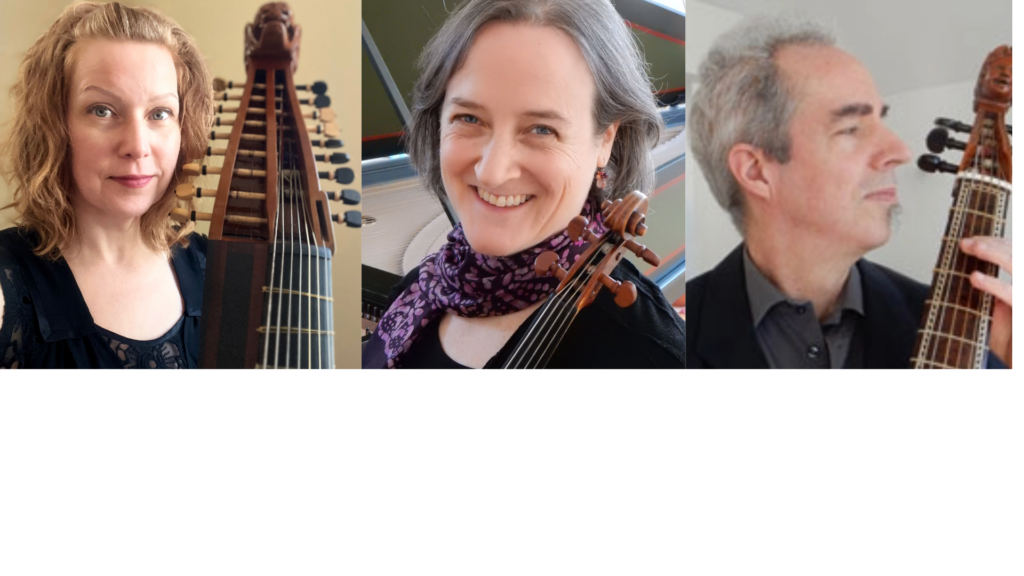
Friday, February 2
Capitol Baryton
The baryton is a stringed instrument that enjoyed popularity during the 17th and 18th centuries. A member of the viola da gamba family, it features six or seven bowed strings and up to 11 sympathetic strings which are plucked. Franz Josef Haydn, an Austrian composer of the Classical period, composed around 175 works for the baryton, making him the most prolific composer for this instrument. His compositions for baryton include divertimenti, 126 trios, 25 duos and 3 concertos (sadly lost). The baryton compositions are characterized by their melodic richness, expressive qualities, and the integration of the instrument’s unique capabilities, such as the ability to play both bowed and plucked sounds. Haydn’s patron, Prince Nikolaus Esterházy, was an avid baryton player, who inspired the composer to create a significant body of work for the instrument. These compositions often showcase the baryton in combination with other instruments, creating a delightful and harmonically rich musical experience. Haydn’s baryton compositions contribute to the historical legacy of this distinctive instrument and highlight his versatility as a composer.
Amy Domingues performs on the cello and viola da gamba. Her early career found her honing her ensemble skills as a session cellist, recording and touring with rock and experimental bands in the USA, Europe, and Japan. Later, armed with a strong interest in music history, Amy turned her focus to the viola da gamba and baroque cello. Following several years of study, including masterclasses with Wieland Kuijken, Paolo Pandolfo, and Philippe Pierlot, she earned a master’s degree in Early Music from Peabody Conservatory. Amy has enjoyed an ambitious career as a historically informed musician, performing on baroque cello and viola da gamba with groups as varied as The Folger Consort, Hesperus, and The Washington Bach Consort. Amy is a founding member of Sonnambula (Ensemble in Residence at the Metropolitan Museum of Art 2018-2019), and co-founder of Corda Nova Baroque. She is an avid educator and maintains a private studio of cello and gamba students. Ms. Domingues has served as faculty at the Madison Early Music Festival, the Conclave of the Viola da Gamba Society, and appears on over 70 albums, most recently Sonnambula’s world premiere of Leonora Duarte’s Sinfonias (Centaur Records 2019). She resides in Washington, DC with her husband and two cats.
John Moran enjoys a broad-ranging musical career. He holds performance degrees from Oberlin and the Schola Cantorum in Basel as well as a PhD in musicology from King’s College London. His own formative teachers have included Brigitte Czernik-Gruenther, Robert Ashby, Richard Kapuscinski, Catharina Meints, and Hannelore Mueller. He teaches viol, baroque cello, and musicology at the Peabody Conservatory, where he and Risa Browder are founding co-directors of the school’s critically acclaimed Baltimore Baroque Band. Moran is artistic director of Modern Musick, in residence at Georgetown University. He is a longtime principal player with the Washington Bach Consort and co-creator of that group’s Wunderkind Projekt, an outreach program that introduces Washington, D.C. Public School students to Bach cantatas. He has performed and recorded with many of Europe and North America’s leading period-instrument ensembles. The Washington Post has called his Bach “eloquent”, and praised the “bravado” of his Boccherini and the “nimble fluency” of his Vivaldi, while the LA Times has written, “Cellist Moran projected vigorous and expressive bass lines.” He is a contributor to the revised New Grove Dictionary of Music (2001), is writing a historical monograph on the cello for Yale University Press, and is currently president of the Kindler Cello Society of Washington, D.C., and vice president of the Viola da Gamba Society of America. He is married to the violinist Risa Browder.
Risa Browder has performed with the Folger Consort, Washington Bach Consort, Smithsonian Chamber Players, REBEL, English Concert, London Baroque, Consort of Musicke, London Classical Players, Academy of Ancient Music, Hanover Band, Florilegium, Musiciens du Louvre, and Purcell Quartet. Her recording credits include Chandos, Hyperion, Dorian, Virgin Classics, Erato, Deutsche Grammophon, EMI. She is the concertmaster of Modern Musick. Ms. Browder earned a MusB at Oberlin Conservatory, studied at the Royal College of Music in London, and pursued post-graduate study at the Schola Cantorum in Basel, Switzerland.
Program
Trio in A Major Hob.XI: 71
Trio in A minor Hob.XI: 87
Trio in C Major Hob.XI: 93
Trio in D Major Hob.XI:113
Duett in G Major Hob.XII: 4
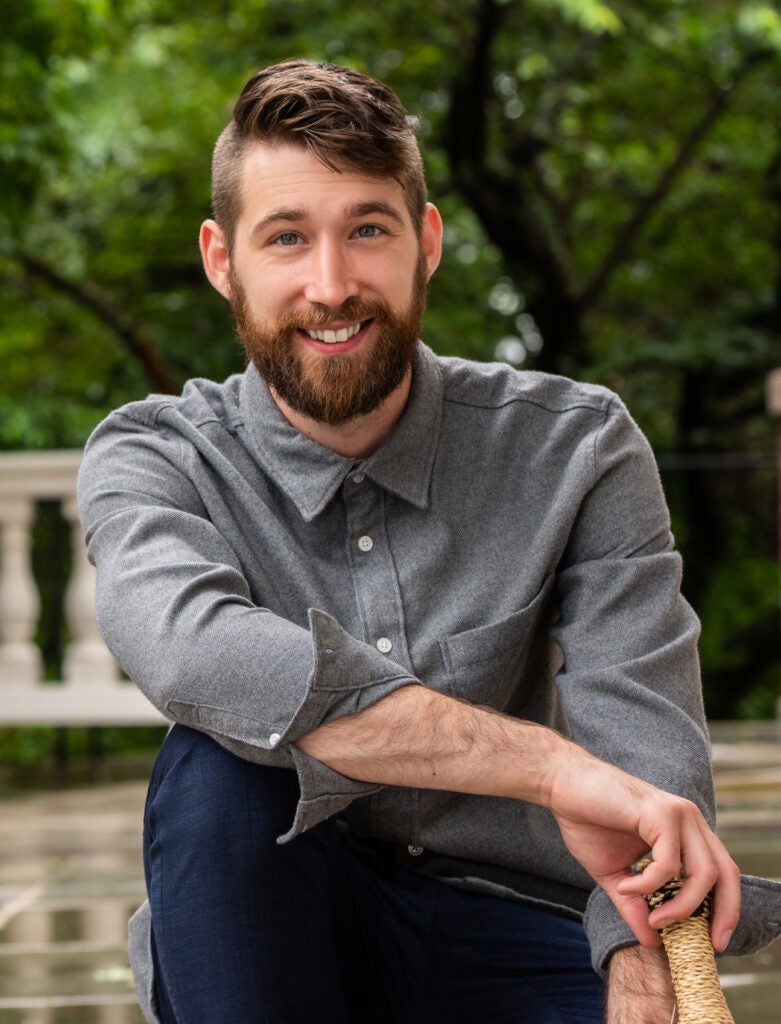
Friday, February 9
Lucas Ashby Brain Trust
Brazilian-American multi-instrumentalist and composer Lucas Ashby brings to his projects a background in rhythms and melodies from South America, West Africa, India, Eastern Europe, American Jazz, & Hip Hop. For the last 15 years, the resulting mosaic of sounds and textures has served as the bedrock of the career Ashby has built as a sideman, performing with such internationally-renowned artists as Ivan Lins, Paquito D’Rivera, Sean Jones, the New York Voices, Brazilian guitar virtuosos Rogério Souza and Diego Figueiredo, and Ghanaian highlife master Osei Korankye. Lucas also performed for 9 years as percussionist with nationally-touring afrobeat-funk powerhouse Big Mean Sound Machine. As a bandleader, Lucas Ashby’s Brain Trust combines global jazz with psychedelic music and regularly features legendary percussionist Cyro Baptista as special guest. Ashby was also a founding member of genre-bending 21st-century chamber-jazz ensemble Arco Belo, led by accordionist, pianist, and composer Simone Baron. In 2020 Ashby also was awarded a position as Artist-in-Residence at the renowned Washington, DC-area institution Strathmore. Ashby is currently performing and touring with several projects, including Seán Heely Celtic Band, Taisha Estrada, Project Locrea, Rose Moraes, Alex Hamburger & José Luiz Martins, among many others.
Alex Hamburger is a flutist, vocalist, and composer hailing from the vibrant music scene of Washington, DC. Raised in a family of accomplished artists, her passion for music ignited at a young age. After some time in New York and studying in prestigious institutions in New York and Switzerland, Alex has returned to DC with a renewed sense of purpose. Alex’s highly anticipated sophomore album, “What If?” (Unit Records, June 29th, 2023), delves into perception, transition, and the boundaries of human experience, fusing electric and acoustic sounds for an immersive narrative. While captivating audiences worldwide, Alex remains deeply connected to the DC music community. She was a 2022 Strathmore Artist in Residence and Wammie awards nominee. Alex actively contributes to her hometown’s musical landscape as the producer of the successful “My Body, My Festival”; a fundraiser for the DC Abortion Fund as well as assisting in the production of the Mid Atlantic Jazz Festival and teaching at Paul Carr’s Jazz Academy of Washington. Alex’s unwavering commitment to her craft and her desire to create resonating music reflect her dedication to both the stage and the community.
José Luiz Martins is a Brazilian pianist and composer from São Paulo – Brazil. He has been recording and performing as a sideman and as a leader for two decades. He has performed at major music festivals in Brazil, such as Jazz na Fábrica (SESC Pompéia), Santos Jazz Festival, Mimo Festival (Olinda), Festival Painel Instrumental, Festival SESC Jazz and Blues, Festival Jazz a La Calle (Uruguay), among others. Since moving to the US in 2019, he has played at festivals such as the Mid Atlantic Jazz Festival and the Northampton Jazz Festival as well as venues all over the east coast, such as Kennedy Center, Blues Alley, Keystone Korner among others. José Luiz Martins also has performed in many venues and festivals all over Europe like Netherlands, Germany, Italy, Brussels, France, Latvia, Spain, Czech Republic, Portugal and Switzerland. His three albums as a leader brought him important prizes and received amazing reviews of specialized criticism. At the moment, José Luiz Martins is working to release a new album as a leader. He has also recorded 15 albums as a sideman, some of which he also produced.
Ian is a bassist and composer from Ohio with a jazz bass performance major and creative writing minor from Oberlin Conservatory. Coming from a musical family, Ian has been performing internationally since childhood and has worked and recorded with the Smithsonian Jazz Masterworks Orchestra, Badi Assad, Danilo Perez, The New York Voices, and the Manhattan Transfer. This past year, Ian received his masters in global jazz and performed at the JAZZCAMPUS in Basel, Switzerland, and the Bimhuis in Amsterdam, Netherlands as a part of the Berklee global jazz institute.
John Lee is a composer and guitarist who is active in the Washington D.C. music scene. He earned a BFA in Jazz and Contemporary Music Performance from The New School University. He has since performed with a host of major artists, including Cyro Baptista, Fatoumata Diawara, Hassan Hakmoun, and Keller Williams. As one of D.C.’s most sought-after musicians and as founder of the jam band Caveman, Lee can be heard on over twenty recorded albums as sideman and on five albums as leader. His stylistic versatility has also taken him to venues and festivals in Brazil, Canada, Israel, Ecuador, Mexico, Portugal, Switzerland, and all around the U.S. Currently, Lee teaches for MusiCorps, a music rehabilitation program for wounded veterans at Walter Reed National Military Medical Center. He also serves as adjunct faculty for the Jazz and Commercial Performance program at Towson University.
For more information about Lucas, visit here
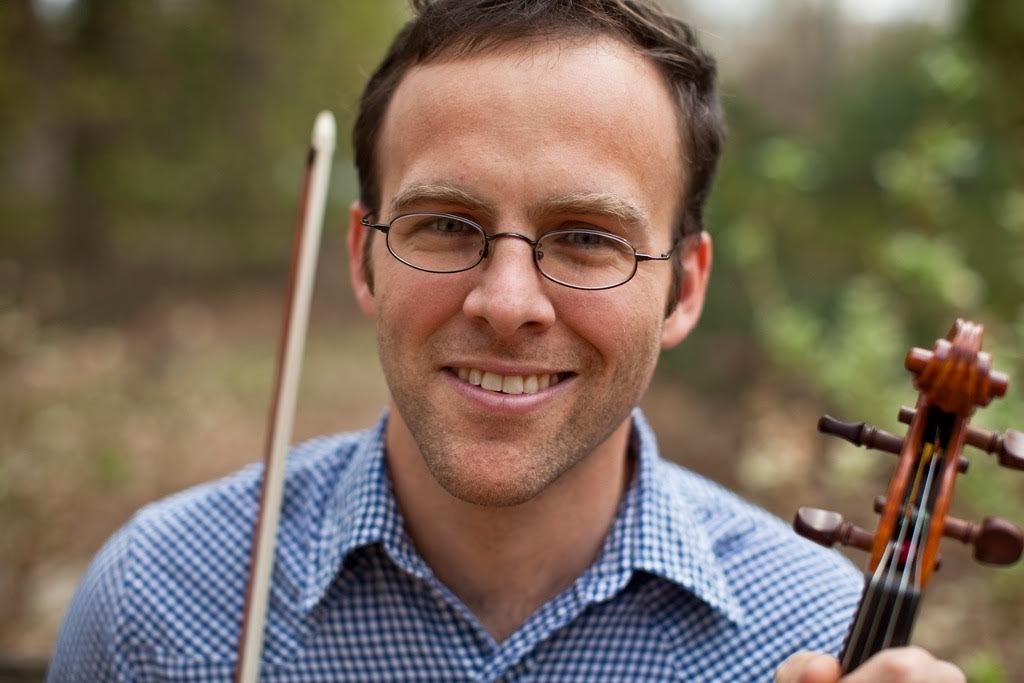
Friday, February 16
Joseph Decosimo, fiddle
A leading interpreter of the fiddle, banjo, and song traditions from the Appalachian South, Joseph Decosimo has introduced audiences around the world to the beauty and vitality of the region’s music. A student of the last master traditional musicians in his home region of Tennessee, Joseph draws on a well of profound creativity and repertoire to create fresh sounds. His performances are inviting and nourishing, connecting audiences to the older music’s transcendent beauty. Joseph also works outside of the traditional music world. His playing can be heard on recordings by fellow Durham, NC artists Hiss Golden Messenger, Wye Oak, Jake Xerxes Fussell, Elephant Micah, and others.
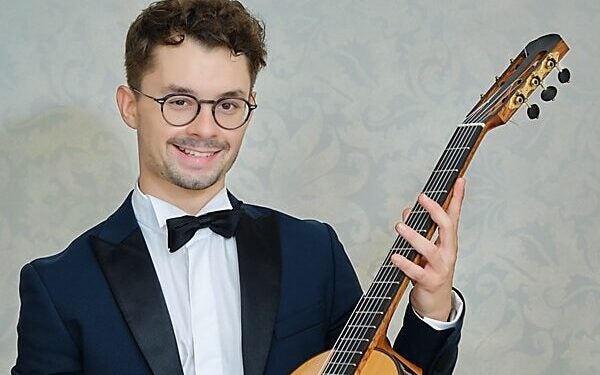
Friday, February 23
Andrea Roberto, guitar
Italian Guitarist, Andrea Roberto’s triumph in the 2019 Parkening International Guitar Competition, the world’s preeminent competition of its kind, has moved him into the forefront of the classical guitar world. Andrea distinguished himself at the Giordano Conservatory under Maestro Sandro Torlontano where he graduated at the age of 14. Subsequently, He began to display his prodigious talent and refined his artistry under the guidance of Maestro Aniello Desiderio in Koblenz (Germany) and Carlo Marchione in Maastricht (Netherlands). He was finally invited to become assistant of Professor Thomas Patterson at the University of Arizona where he obtained his Master degree in 2021. His remarkable musicianship and virtuosity have led to awards and performances across the globe. In 2017, Andrea made debut recording, “El Viaje de la guitarra italiana” with JSG Records which has received much critical acclaim. David Russell has noted: “Andrea’s attractive phrasing of melody paired with an impressive level of technical difficulty has earned him a place in the classical guitar community.”
Program
M.Giuliani – Rossiniana no.6 op.124
J.Dowland – The frog Galliard
– John Smith his almain
– Allemande From pleasures
M.Praetorius – from Suite in D
Prelude-Ballo-Gavotte- Spagnoletta-Volte
J.Rodrigo – Fandango
I.Albeniz – Cordoba
– Sevilla
F.Tarrega – Variations on the Carnival of Venice
For more information about Andrea, visit here

Friday, March 15
Imani-Grace Cooper and Terrence Cunningham, jazz duo
Imani-Grace Cooper is a jazz vocalist with idiom versatility and knowledge from experiences including collegiate studies under the main instruction of 2013 DownBEAT Magazine’s Jazz Education achievement Award recipient, Connaitre Miller. Her enthusiasm for jazz fueled the cultivation of a jazz series at Sankofa Cafe in Washington, D.C., titled Sounds at Sankofa which features a variety of DC jazz legends like Allyn Johnson and Fred Foss. Imani-Grace debuted as a solo artist as the Apollo Theate’’s guest artist during the Annual Harl Jazz Week. Imani-Grace Cooper, as a solo artist and ensemble singer, has shared band stands with Dianne Reeves, Esperanza Spalding, Terri Lyne Carrington, the late George Duke, Al Jarreau, and many more! Imani-Grace services fellow enthusiasts of singing in private voice lessons and can be found singing regularly in Washington, D.C., and surrounding cities. Imani-Grace is joined by Terrence Cunningham, a native Washingtonian and phenomenal vocalist/finalist on ABC’s The Voice.
For more information on Imani Grace, visit here
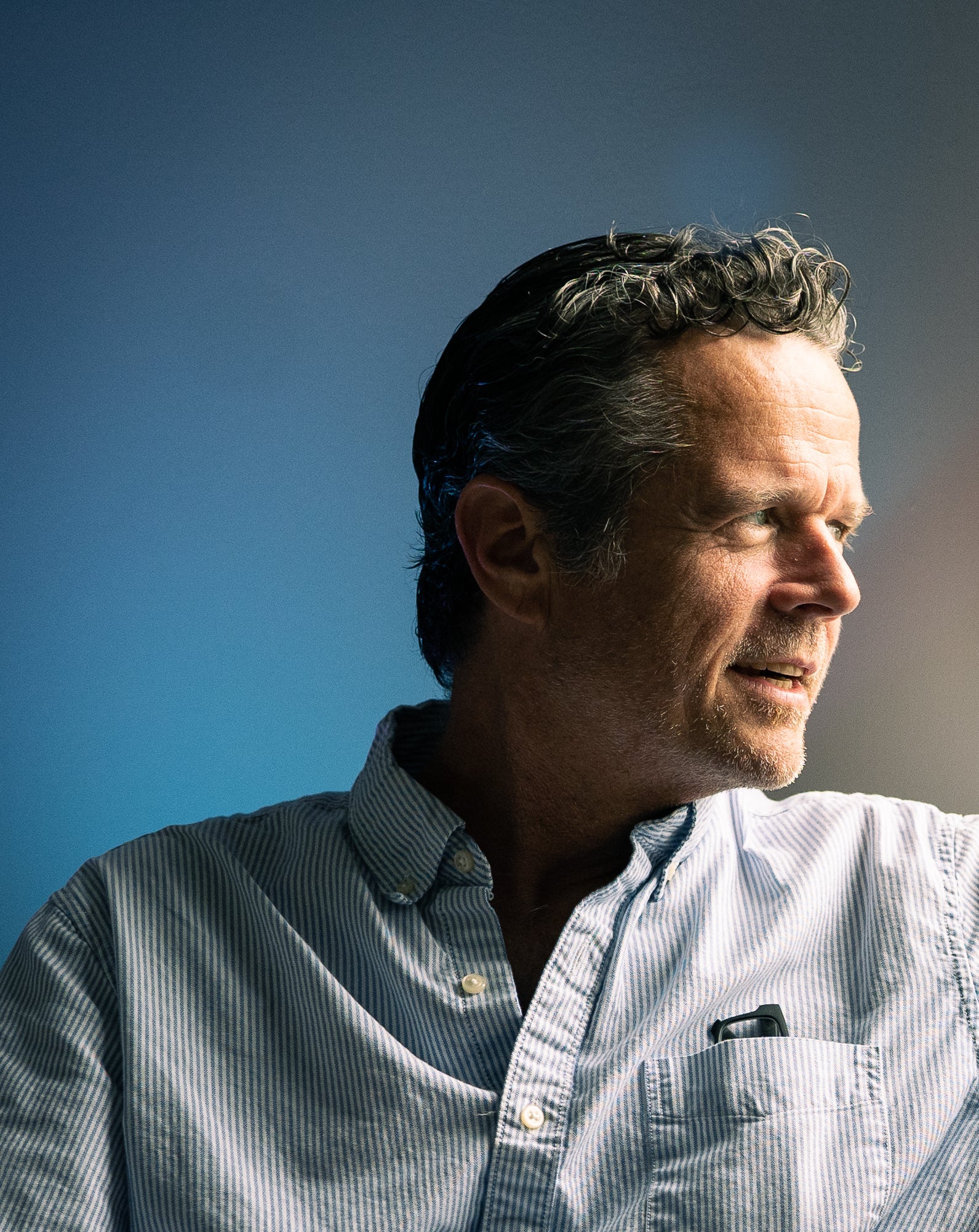
Friday, March 22
Jim McCormick, singer-songwriter
Jim McCormick is a 5x Grammy-nominated, multi-platinum selling songwriter who has had three #1 songs on the Billboard Country Charts: Jason Aldean’s “Take A Little Ride,” which spent 3 weeks in the #1 position; Brantley Gilbert’s “You Don’t Know Her Like I Do,” and most recently, Gabby Barett’s “The Good Ones.” Current releases written by McCormick include Kelly Clarkson’s “Minute,” Gabby Barrett’s “The Good Ones,” Luke Bryan’s “All My Dreaming There,” Jason Aldean’s “Lights Go Out,” Harry Connick Jr’s “I Do Like We Do,” Jon Pardi’s “Lucky Tonight,” Charlie Pride’s “Standing In My Way,” Shenandoah’s “Noise,” Trace Adkins’ “Jesus and Jones,” and four songs on the new Samantha Fish record. His songs also have been recorded by Tim McGraw, Keith Urban, Trisha Yearwood, Randy Travis, Ronnie Milsap, Jamey Johnson, Smash Mouth, Tyler Farr, Cody Johnson, Emily Reid, Balsam Range, Sister Hazel, Kristin Chenowith, Josh Abbott and many others.
He has served as board governor and vice-president for the Recording Academy and on the board of the Nashville Songwriters Association International. He is also an alumnus of Nashville’s Leadership Music. McCormick is a faculty member at Loyola University in New Orleans where he teaches the craft and business of songwriting. He has lectured extensively on songwriting at Berklee College of Music, Georgetown University, Vanderbilt University, and Tulane University, as well as at GrammyPro and NSAI events. He holds a Bachelor’s degree in English from Georgetown University and a Master of Fine Arts degree in creative writing from the University of New Orleans. A native New Orleansian and graduate of Jesuit High School, he divides his time between Nashville and New Orleans, where he lives with his three sons.
For more information about Jim, visit here
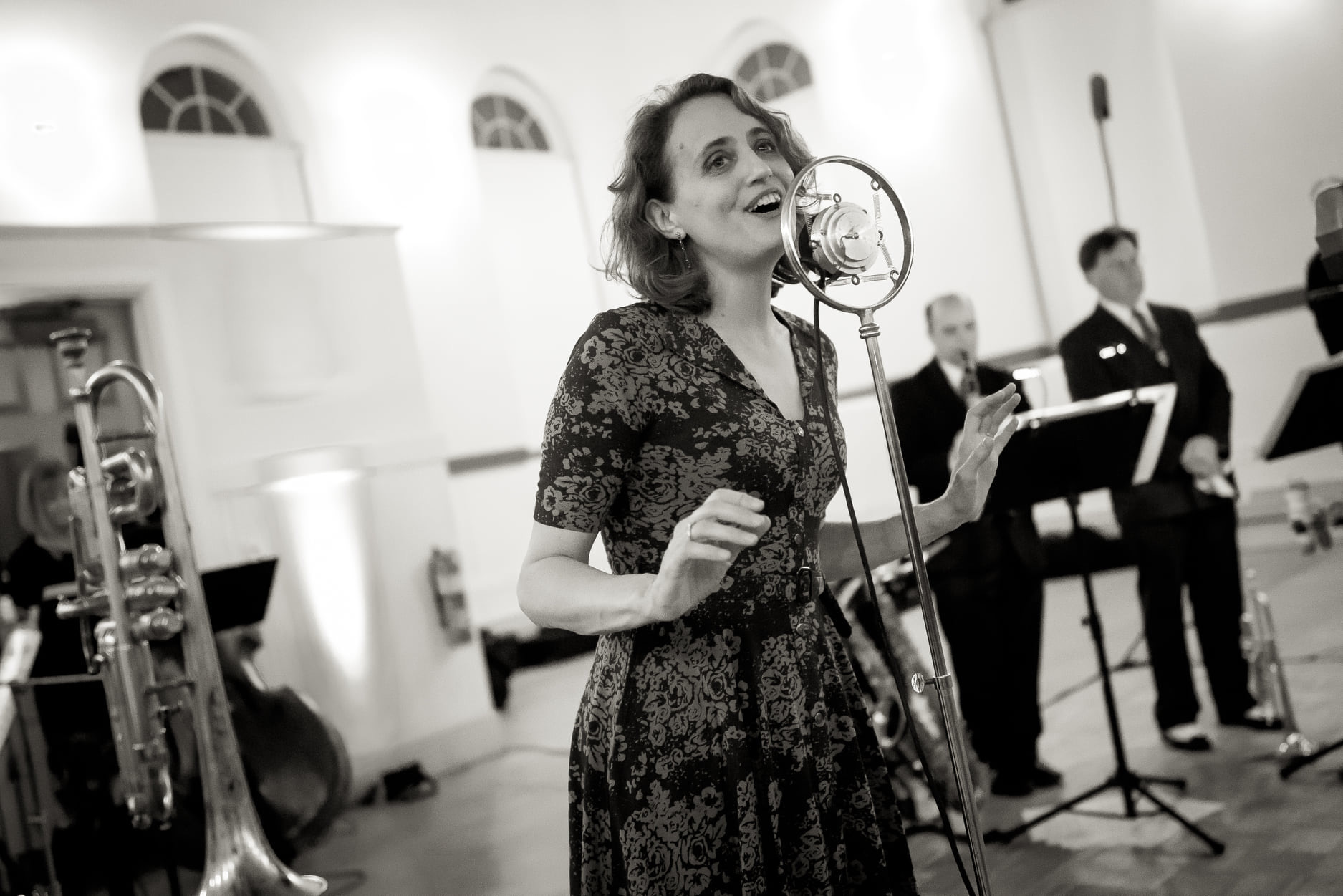
Friday, April 5
Maggie Paxson’s Bomb Shelter Cafe
Maggie Paxson is the author of The Plateau (Riverhead Books, 2019), in French, On ne voit bien qu’avec le coeur (Editions Payot), which received the 2020 American Library in Paris Book Award for the “moral urgency of the questions it poses, for its ambitious efforts to connect France’s past to its present, for its big heart, poetic writing and genre-defying structure.” The Plateau was described by Oprah magazine as “radiant” and by the Washington Post as “a loving combination of personal memoir, historical investigation, and philosophical meditation.” A writer, anthropologist, and performer, Paxson is also the author of Solovyovo: The Story of Memory in a Russian Village (Woodrow Wilson Center/Indiana University Press, 2005), a study of magic, ritual, and social memory in the rural Russian north. Her essays have appeared in TIME, Washington Post Magazine, Wilson Quarterly, and Aeon. Fluent in Russian and French, she has worked in rural communities in northern Russia, the Caucasus, and upland France. Paxson holds a bachelor’s degree in anthropology from McGill University, and a Master of Science and Ph.D. in anthropology, both from the University of Montreal. She performs as a singer with the Imperial Palms Orchestra, one of the East Coast’s leading big bands, featuring music of the 1920s through the 1940s. She has also launched a series of participatory events that she calls “Bomb Shelter Cafés,” inspired by the music and collective art of embattled communities during the Second World War. She lives in Washington, DC, with her husband, writer and historian Charles King.
Maggie Paxson’s Bomb Shelter Café is a participatory, sing-along event weaving together the songs of the 1920s to the 1940s with stories of survival and transcendence in troubled times. Evoking moments when creating collective beauty was itself an act of resistance, the Bomb Shelter Café provides participants an opportunity to contribute immediately to tikkun olam, the repair of the world. Following along from printed lyrics in English, French, Italian, and other languages, participants have joined Maggie in raising their voices for hope at public venues such as the storied Joe’s Pub in New York, the renowned George Eastman Museum, bookstores, public libraries, and private homes from Washington, DC, to rural France.
For more information about the Bomb Shelter Cafe, visit here
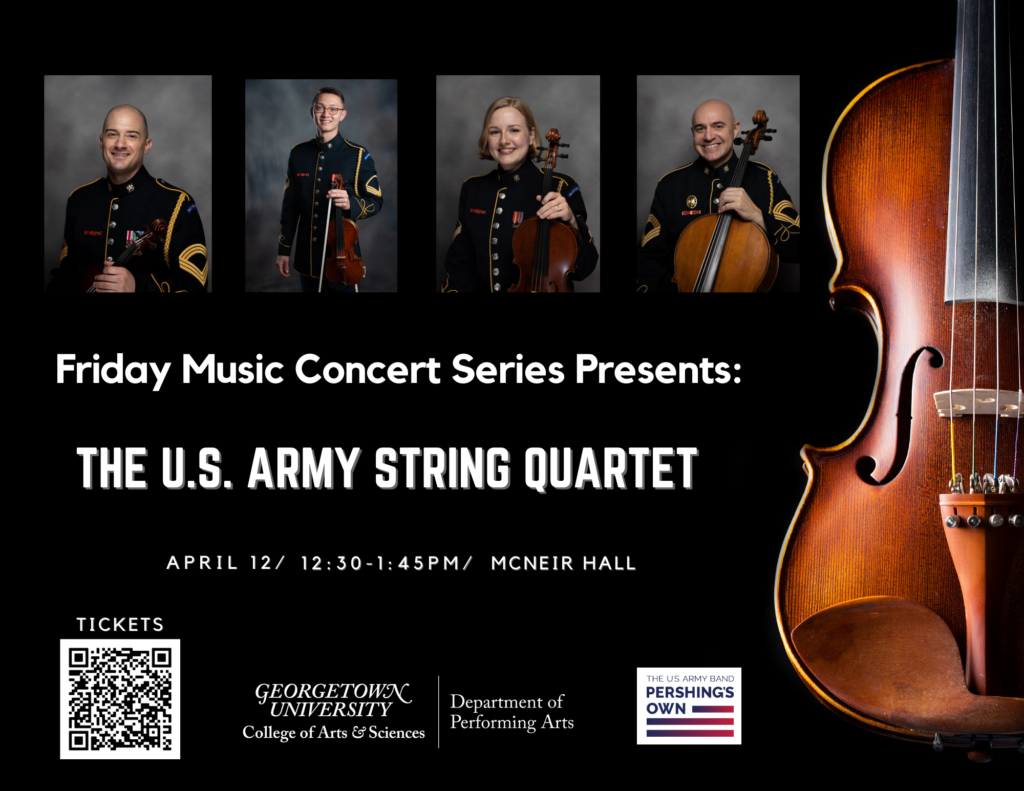
Friday, April 12
The U.S. Army String Quartet
String Quartets are one of the most frequently requested small ensembles of The U.S. Army Strings since its founding in 1950. Deployed on missions throughout the National Capital Region, Quartets draw from The U.S. Army Strings personnel to fill the 2 violin, viola and cello configuration. While the instrumentation is fixed, the Soldiers are rotated, ensuring maximum use of the talented members of The U.S. Army Strings.
Frequently sought after to perform at high-level special events at The White House, The Vice President’s Residence and the U.S. Capitol, String Quartets are also tasked for important missions in support of military leadership at the highest levels. One of the most versatile and flexible ensembles, both musically and logistically, Army String Quartets perform for both intimate official events as well as larger public concerts in the community. They support numerous outreach concerts at venues such as The Kennedy Center’s Millennium Stage, The Lyceum, Arena Stage, and Church of Epiphany in Washington, D.C. The quartet recently branched out to virtual broadcasts as part of The U.S. Army Band’s “United We Stand” broadcast series.
Past Performances